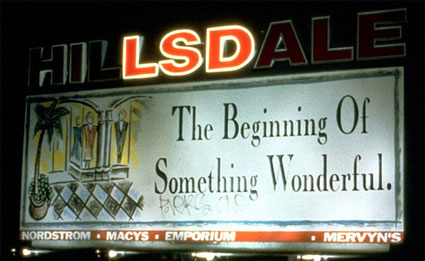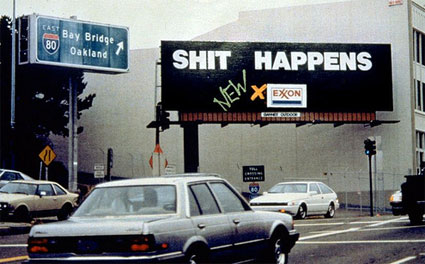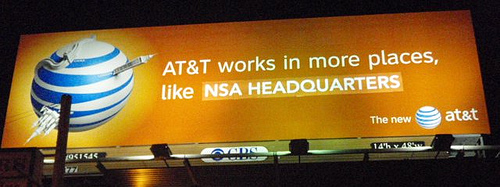
First a hypothesis:
Social networking platforms conduce a certain amount of civility from their users. I'm guessing the public nature of it makes no one want to look mean. But also, I would believe, people get sucked in to the reputation, popularity and in some cases increased usability that a large social graph implies (by the later i mean some web apps work better the more people are using them). So we shy away from being impolite and spamming our friends with fuck you or annoying applications. This politeness, at least for some of us, seeps into our approach to social networks as a whole. This is all good and dandy when we are only using facebook or myspace to keep in touch with people or for entertainment but it hinders some of the best potential that social networking has: to organize peer 2 peer movements and to use its inherent reputation systems to hold individuals or entities accountable. Because social movements are always in someway linked to social antagonisms it helps to organize expressing those antagonisms. Because maleficent individuals and entities (our corporate masters!) respond to negative attention and change policy, accountability can be served by antagonism.
enter enemybook...
... a few days ago I saw that a friend of mine had added the enemybook application on facebook, a fb whore myself I got curious and added it myself. The app was developed by MIT Grad student Keven Matulef, he writes on enemybook.info:
Enemybook remedies the one-sided perspective of Facebook, by allowing you to manage enemies as well as friends. With Enemybook you can add people as Facebook enemies, specify why they are your enemies, notify your enemies, see who lists you as an enemy, and even become friends with the enemies of your enemies.[you can also flip-off your enemies, the anti-social networking equivalent of poking]
I immediately added the friend mentioned above and margaret thatcher as enemies, then quickly forgot about the app for a few days. But today I got to thinking that enemy book might work as a viral platform for public and corporate accountability campaigns.
So to experiment and thinking of a particular labor rights campaign against coca-cola, I returned to enemybook, and found, deep on its message board, that I could add "fan of" pages, which for many corporations serve as marketing on fb, to to my list of enemies. It takes a little side-step though:
1. copy the unique user id of a page. that is number found in the url such as http://www.facebook.com/pages/Coca-Cola-R/8516303118?ref=s
2. Paste it into the box on the "Enemy Others" part of the add enemies page.
Then your given the option to state why they are your enemy. So I pasted in the first paragraph from the about page of the killercoke.org campaign as well as its url. And presto coca-cola was my enemy.

Now this anti-social networking isn't going to be the killer app of online organizing but its a fun viral way to spread word of a campaign or as a fun kind of petition. As users, non-profit and social change pages, as well as their use of apps like causes and ultimatums, develop those will definitely be the best places to spread information and get people to collaborate on activism. But I imagine apps like enemybooks can also be hijacked by activists as parts of their toolbox.
I must say, that the developer's blog, enemyblog, is skeptical of such a use:
Hot on the heals of Enemybook's appearance in Timeout London, I've been asked by a fairly well-known NGO to make a more serious version of the program. The goal of this NGO is to prevent genocide, and their hope is that a more serious Enemybook will act as a sort of war criminal "watch list." The idea is to help educate the public about some of the alleged perpetrators of atrocities being committed internationally (specifically in Darfur), and get people to put pressure on the UN to stop these atrocities and bring the appropriate people to justice.
Admittedly, I have my doubts about the efficacy of a Facebook app in furthering this (or any) humanitarian cause. But if there's one app that can stop genocide and bring world peace, Enemybook is it. Time permitting, I'm going to see what I can do for this organization. More details to follow in the coming weeks.
In fact, Kevin treats the app as a parody of facebook and its how it solicits users to be polite and except almost all friend requests, a valuable statement in itself. from the boston globe:
He describes the program as "an antisocial utility that disconnects you to the so-called friends around you."
Matulef, 28, got the idea from undergraduates at the dorm where he tutors, after hearing one student talk about how someone was a "Facebook friend," but not a "real friend."
But because of the fun virality reasons stated above, I disagree that enemybook couldn't be useful to activist. But I also disagree with the NGO that a more serious version is needed (I am reminded of Ethan Zuckerman's recent Cute Cat Theory of Internet Activism: if a platform is not used to spread pictures of cute cats, meaning if it is not used for p2p entertainment, it is not working, if the platform is not used for activism, it is not good). Rather what is needed is better functionality.
Namely:
1.: creating an automatic way to add pages as enemies (no unique id cut and paste)
2.: easy to link to other pages, causes and activist resources on fb or the net.
3.: A better list of public figure enemies, keeping it thorough, searchable and with catagories such as corporations.
And the best for last:
4.: Add the ability to coordinate mass flip-offs. Such a coordinated effort would flood the pages inbox, these messages would take time to remove, and affect the targets confidence and ability to use facebook. It would effect their marketing departments bottom line and might qualify as electronic civil disobedience. As a added bonus, it might discourage corporate presence on fb.





